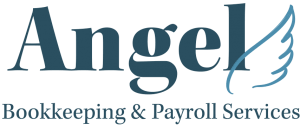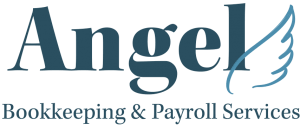If you’re newly registered for VAT, or a little confused about it, this article, “What can I claim back VAT on?” will set everything out in straightforward, jargon-free terms.
An Unmarked Milestone of Confusion
Did you know that April 1st 2023 marked the 50th anniversary of the introduction of Value Added Tax (VAT) in the UK?
No, we weren’t party to those celebrations either.
In fact, this milestone date went pretty much below everyone’s radar. Dubbed as “a simple tax” by the then-Chancellor, many people these days consider it anything but. And, post-Brexit, just for good measure, there are a few extra layers of complexity for VAT-registered businesses that trade with the EU.
Most British company owners, it seems, think that the requirements and processes associated with VAT are too demanding. And, unless you’re fully qualified to take on this arduous task, we must agree. What could possibly go wrong? Well, quite a lot. Most likely, a DIY approach will take up way too much of your precious time; time that you could spend growing your business.
And, apologies, but there will almost certainly be mistakes in the returns.
The good news is that Angel Bookkeeping has all the expertise you need to compile and submit VAT returns on your behalf. We’ll take care of everything and register your business for VAT.
In the meantime, it’s good to know what you can claim against VAT and what you can’t.
The Basics
If your business generates a turnover of £85,000 or more within a 12-month period, you must register for VAT regardless of your status – sole trader, partnership or a limited company. You can also register with a lower turnover; many early-stage companies prefer to do this.
As a VAT-registered company or sole trader, you will charge a standard VAT rate of 20% on top of the value of your invoice. This percentage applies to most of us. (A 5% rate applies to domestic utilities, children’s car safety seats, mobility products and products to help people stop smoking. A 0% rate is levied on most food items and children’s clothing.)
You can claim back VAT if you buy from a VAT-registered company for business reasons.
We’ll re-word that last sentence because it’s critical: It’s reclaimable only on goods and services you purchase for your business, and you MUST have receipts. No receipt, forget it. Just on receipts – ideally, they should have the name, address, VAT number of the supplier, your name and address, a date, a description of the services, the cost before VAT, the VAT itself and the total amount that contains the VAT.
However, many VAT receipts can be shorter with more basic details.
What Can I Claim Back VAT On?
Please note that there are the “headline” rules and that some regulations may need clarification.
Remember, there could be exceptions and even exceptional cases for reclaiming. As mentioned, some items don’t incur VAT, or they are charged at a non-standard rate.
You can also claim back VAT on purchases made before you registered, but you can only do this once, and there are limits on how far back you can reclaim.
Get in touch with Angel Bookkeeping for more information.
Vehicles
In a nutshell, the rules for vehicles and fuel are relatively nuanced. In other words, a bit complicated.
If you buy a new car just for business use, you may be able to claim back VAT on it, but you need to prove that you won’t use it on a personal basis – which includes driving between home and work. The claim-back rules on a new car also apply to taxi drivers, driving instructors and for self-drive hire. The latter only applies if you hire the vehicle for fewer than 10 days.
Bought a used car for business? You need to retain the sales invoice that shows VAT.
Fuel
A similar process applies. You can reclaim VAT if you use the vehicle just for your business. A mix of business and personal use will require you to keep detailed mileage records, and only business trip mileage will be relevant to your tax return.
Other Vehicle Costs
Repairs and off-street parking, and all running and maintenance costs. Plus, any accessories you’ve fitted for business use.
Travel
Travel expenses include transport, meals and accommodation relative to your business.
What Else? Your Quick Guide
- Office supplies and stationery – paper, printer ink, postage etc
- Computers and equipment – work laptops, IT services, software etc
- Stock – items that you buy for resale or raw materials purchased to create things to sell
- Premises – rent for your office, insurance costs, utility bills etc
- Mobile phones – the proportion you use for business
- Professional services, such as a bookkeeper, accountant or lawyer
- Marketing – website services, work-related events, marketing collateral, advertising etc
- Employment – salaries, benefits, bonuses, pension contributions etc
What Can’t I Claim Back?
Anything that’s NOT for your business. If you use something half-and-half – say your mobile phone – you can claim VAT back on your business calls.
The cost of entertaining. This fact may surprise you, but offering hospitality to suppliers and customers is not reclaimable.
Goods and services you use to make VAT-exempt supplies.
What Records Do I Need to Keep?
In brief, if you’re VAT registered, you must be meticulous.
At some stage, HMRC may wish to check your accounting, and you could (repeat could) be fined if your record keeping causes you to mis-file or make mistakes.
- All goods you buy and sell for your business, including reduced rate and zero-rated items.
- Copies of all your invoices
- Self-billing agreements – where your customer prepares the invoice
- Debit and credit notes
- Any goods you give away or take from stock for your private use
Plus, bank statements, cheque stubs, paying in slips, rill rolls and cash books.
Things will be much easier if you upload your records to the cloud, as you won’t have to worry about holding onto pieces of paper. Angel Bookkeeping operates cloud-based services so we can retrieve them whenever we need to.
Dates and Deadlines
You’ll generally submit a VAT return every 3 months, and this is known as your “accounting period”. HMRC will need to see this submission, even if you have no VAT to pay or reclaim. Deadlines are strict. You’ll have to submit your return online usually one calendar month and 7 days after the end of your accounting period.
Note: Angel Bookkeeping can do this for you.
So, there you are. What can I claim VAT back on? We hope we’ve made things as clear as possible, but with every scheme and rule, there may be margin schemes, exceptions and several other fiddly bits to trip you up. Do you really have hours of extra time, lots of expertise and enough confidence to compile and submit your VAT returns?
We’re just leaving this one here for you.
Get in touch with Angel Bookkeeping on 07867 129210.

